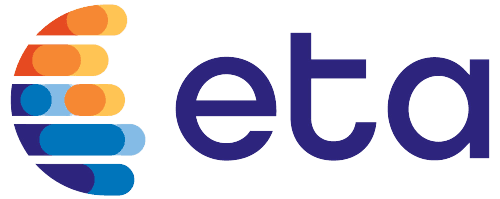HIGH-RISK SHOPIFY MERCHANT ACCOUNTS
Shopify is one of the most popular payment processing systems, and low-risk merchants can now use Shopify’s internal payment gateway, Shopify Payments, to accept and manage transactions. However, if you’re a high-risk merchant, you might be denied using Shopify Payments with your high-risk merchant account.
As a high-risk merchant, you’ll need to rely on a third-party payment provider for your Shopify account — which may be the best payment method for Shopify anyway. Keep reading to learn more about what classifies a high-risk merchant account, what Shopify’s payment gateway involves and what to do if Shopify Payments doesn’t support your industry.
WHAT ARE HIGH-RISK MERCHANT ACCOUNTS?
A merchant account enables businesses to accept credit card payments virtually or in person. These accounts are categorized into two types of accounts, low risk and high risk. The latter is for businesses with a higher likelihood of fraud or chargebacks. While some industries are naturally at higher risk than others, businesses can gain high-risk status because of their internal financial history.
A business might be high risk for a variety of reasons, including:
- Bad personal credit: Having bad personal credit means banks will be less likely to give you loans. Consequently, you might find difficulty in securing a merchant account when you have bad credit. If your FICO® credit score drops below 600, banks and other payment processing companies might label your business as high risk.
- High fraud, chargeback or refund rates: If your company has high chargeback or refund rates, you might have a high-risk account. Any business can potentially lose its merchant account when they have a significant rate of chargebacks or fraud. Further, your company will be less trustworthy to banks when your refund rates exceed sales.
- Offering subscriptions, continuity programs or free trials: Often, people don’t realize they’ve signed up for an indefinite subscription, which leads to more chargebacks. Additionally, when customers forget to cancel a trial, they’ll raise your chargeback rate.
Certain industries are more likely to put your merchant account in the high-risk category, which include:
- Adult: Due to banks’ stigma surrounding the potentially controversial topics and products of the adult industry, adult businesses are often high-risk. These companies are also often startups that lack processing history.
- Bad credit: If you have personal bad credit, a bank could deny you a merchant account even though you may have ample business funds.
- CBD: CBD merchants are often denied merchant accounts due to strict industry and government regulations surrounding CBD’s similarity to THC. When considering most CBD transactions happen online, it’s crucial to find a stable high-risk merchant account provider.
- Coaching: If you provide high-ticket coaching services, you might have trouble getting a merchant account. For example, offering a seminar with a 30-day refund trial period may increase chargeback rates.
- Credit repair: Although these companies help people with low credit get out of debt and improve their credit scores, they’re considered high-risk. Those in this industry frequently offer subscription-based services, experience a high amount of chargebacks, and can be expensive.
- Firearms and ammunition: These businesses are considered high-risk regardless of their credit score, volume of chargebacks or business history. The gun industry is also highly regulated, so it can be difficult to find a payment processing service.
- High volume: These are merchant accounts that receive a large volume of transactions, and have been on the rise with the recent increase in e-commerce sales. Many transactions can increase both fraud and chargebacks, putting high-volume companies in the high-risk category.
- Multi-level marketing: Although multi-level marketing (MLM) is a legitimate industry, MLM accounts might be considered high-risk due to the high volume of bad actors devising pyramid schemes and excessive chargebacks from slow refund requests.
- Nutraceuticals: These companies sell food-derived alternatives to pharmaceuticals, which banks may find high risk due to an elevated chargeback rate from inaccurate product descriptions and a high volume of transactions.
- Subscription continuity: Offering subscription-based services is an excellent way to retain customers. However, companies with subscription models experience a higher number of chargebacks due to the automatic billing process. Many customers also sign up for free trials, forgetting to cancel their subscription and leading to higher chargeback rates.
- Tech support: The tech support industry is vulnerable to fraud because of the exposure to sensitive customer information, making it high risk.
- Travel: Many travel companies have strict refund policies in case of cancellations. Because cancellations lead to higher chargebacks and the services that travel companies provide are often expensive, the travel industry is frequently considered high-risk.
If your business belongs to one of these industries, you’ll most likely have a high-risk Shopify merchant account. While you won’t be able to use the Shopify Payment Gateway, as described below, Shopify has partnered with some third-party gateway providers for high-risk accounts.

USING SHOPIFY PAYMENTS GATEWAY
While a merchant account stores and retains funds, a payment gateway is the processing technology that manages credit card transaction information shared between the customer and the merchant. These services allow you to securely accept credit and debit card payments by managing all the steps between when a customer buys something with their credit card until the money reaches your bank account.
Shopify Payments is Shopify’s payment gateway. Shopify partnered with Stripe’s payment processing system to process users’ information without using a third-party company. Instead of logging into an account with a third party, low-risk merchants can use Shopify’s internal payment gateway with their Shopify account. Shopify Payments effectively eliminates the go-between in payment processing.
THIRD-PARTY PROVIDERS FOR SHOPIFY’S PAYMENT GATEWAY
While Shopify Payments simplifies payment processing operations for low-risk merchants, a third-party provider is a better option for high-risk businesses. Shopify can shut down high-risk merchant accounts that use Shopify Payments, and Shopify’s terms of service prohibit merchants in certain industries from using its internal processing system. Fortunately, high-risk merchants can still accept credit card payments with one of Shopify’s third-party payment providers.
WHAT IF YOU CAN’T USE SHOPIFY PAYMENTS IN YOUR INDUSTRY?
Imagine that you check your Shopify account one day and are greeted with a message claiming you can’t accept payments with Shopify. If you’re a high-risk account and operate an adult, CBD, gun or a similar high-risk business, you can add a third-party payment provider to your high-risk merchant account.
First, check out Shopify’s terms of service to make sure you qualify as a high-risk account. Then, explore the list of third-party providers available in your country to start accepting digital payments from customers. To add a third-party payment provider, log into your Shopify merchant account as an account owner and activate a new credit card provider in the drop-down menu. Finally, wait for your merchant account provider to supply you with directions to run a test transaction.
As a result, you should now be able to use a third-party gateway provider with your Shopify merchant account.
FIND YOUR ZEN WITH ZEN PAYMENTS
If you have a high-risk Shopify merchant account, you won’t be able to use Shopify Payments as your payment gateway. Zen Payments specializes in high-risk merchant services to help you stop worrying about payment processing and start accepting payments.
We believe in no good merchant left behind, regardless of whether you’re considered a high-risk industry. We have more than 15 banking partners to give you the best processing rate and a long-standing merchant account.
Contact us today to receive a quote within 24 hours for your e-commerce payment processing needs!






